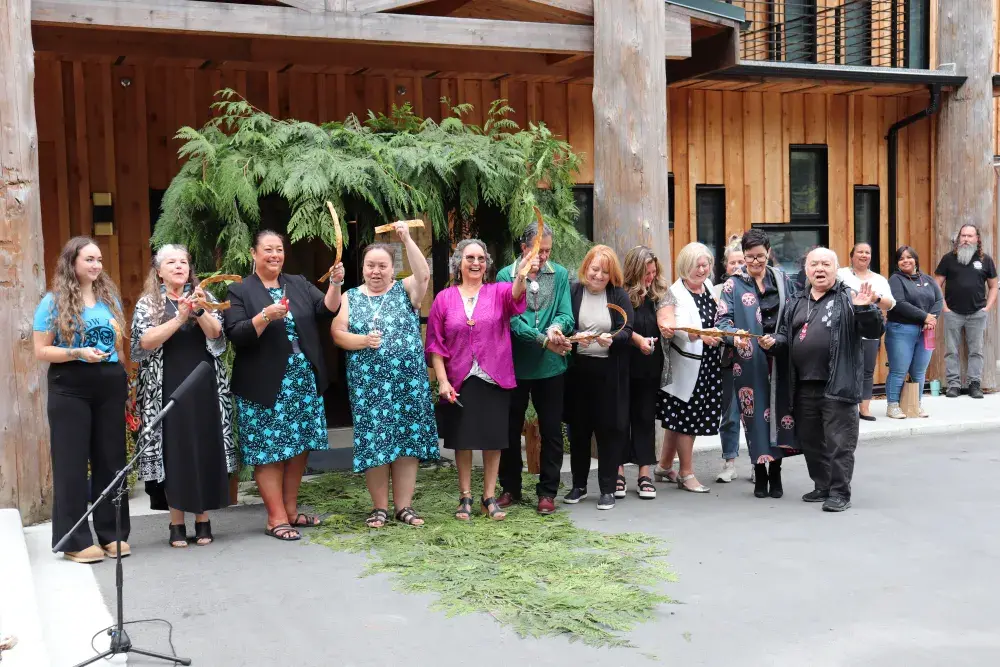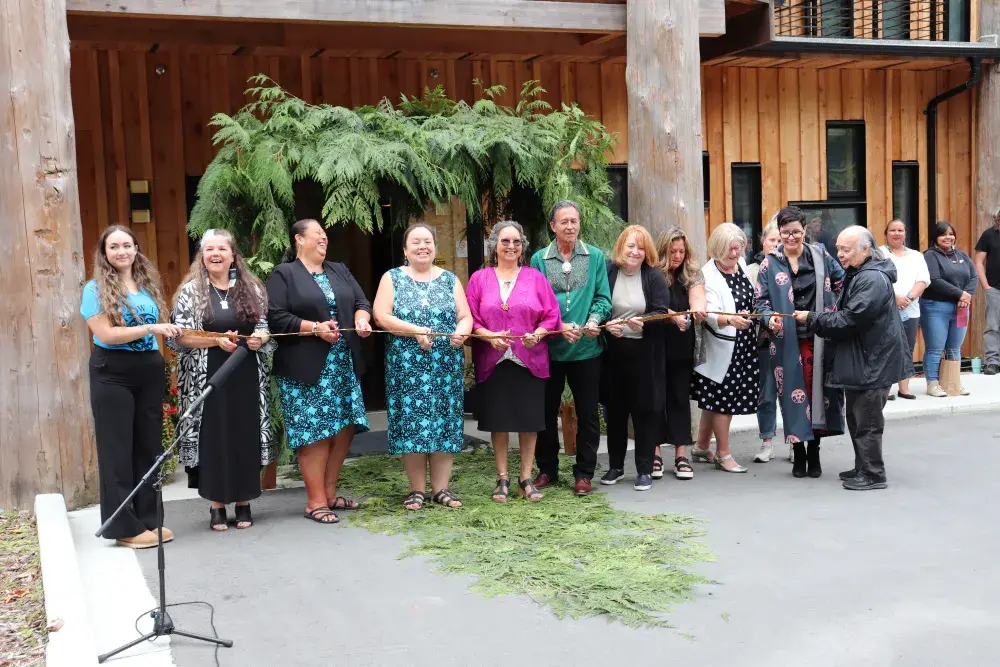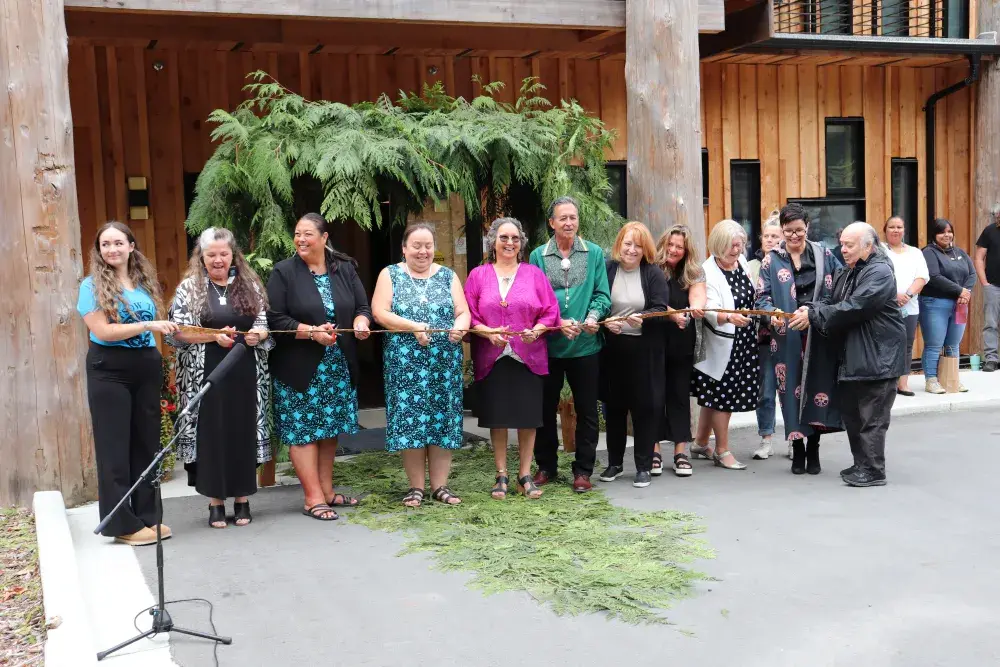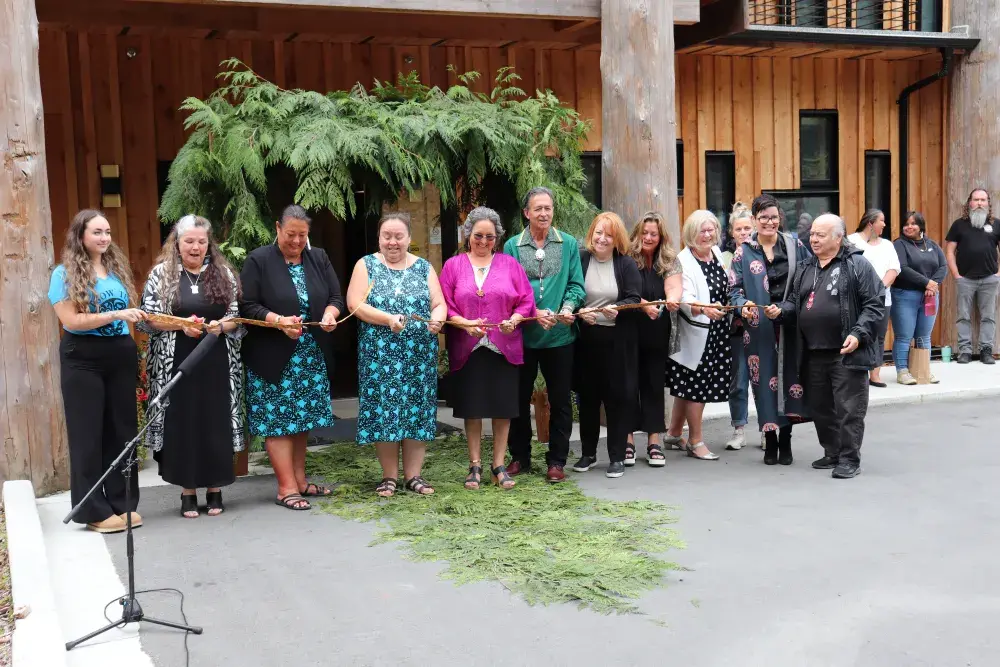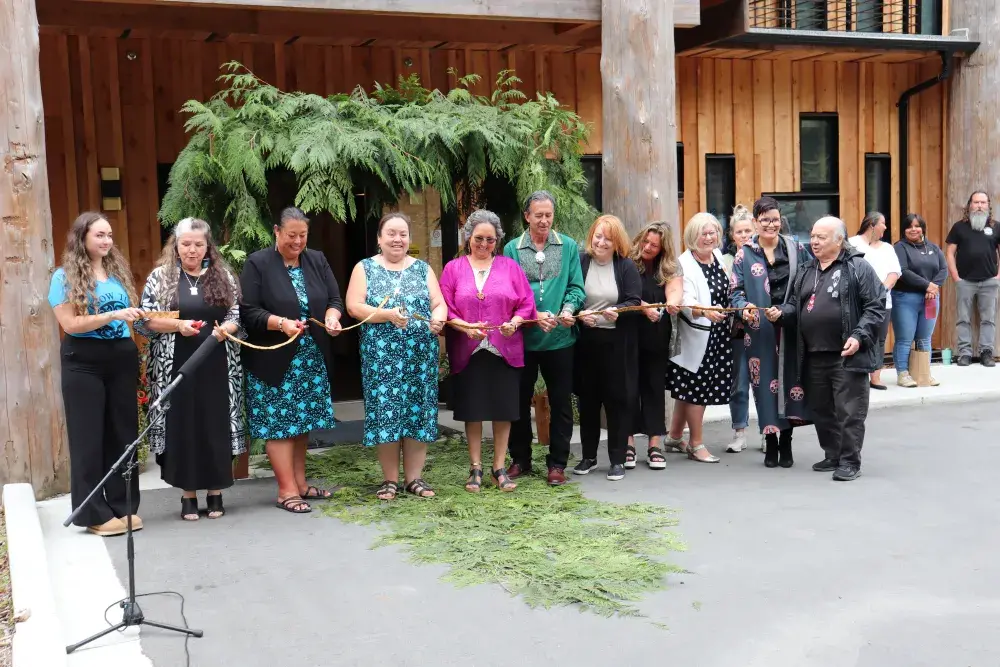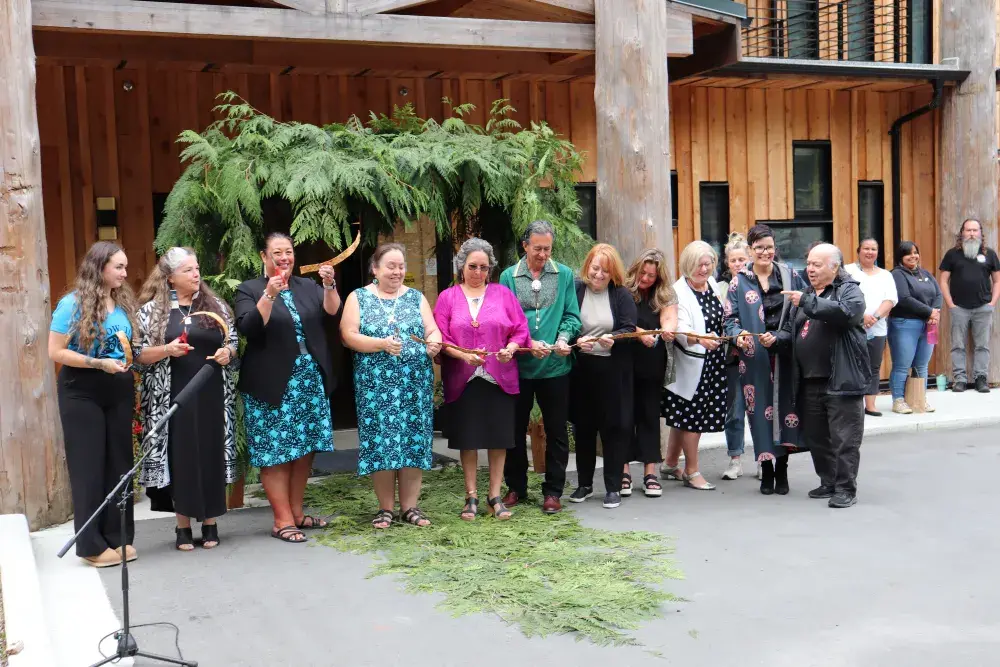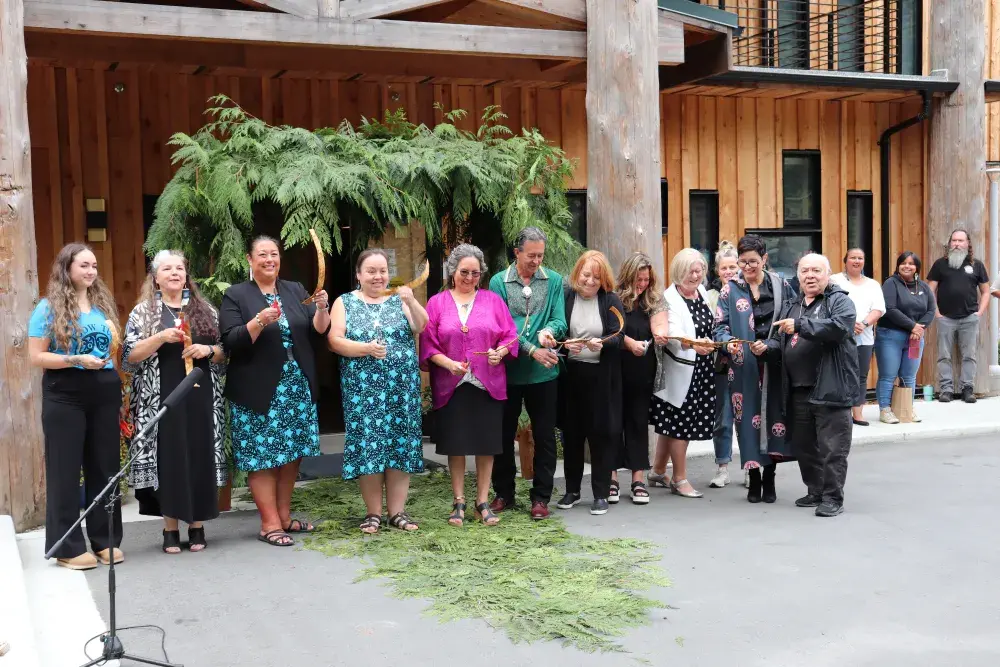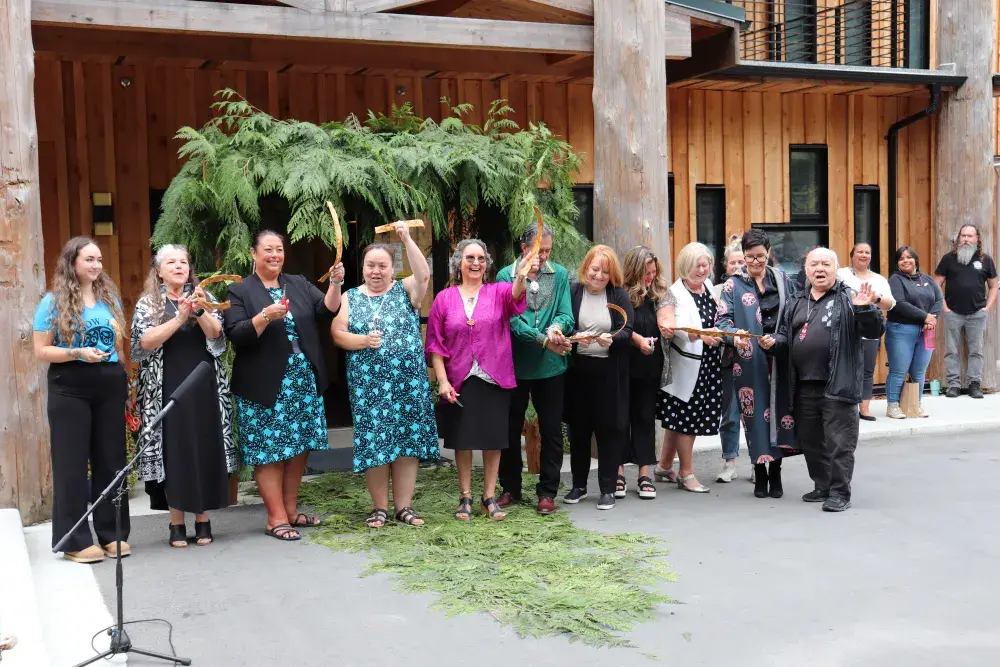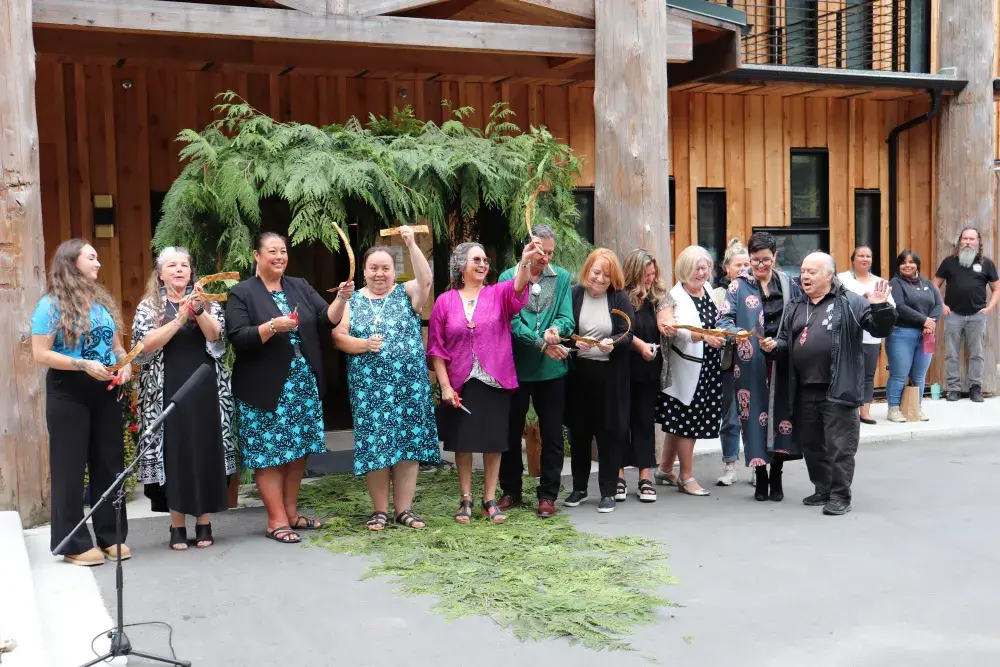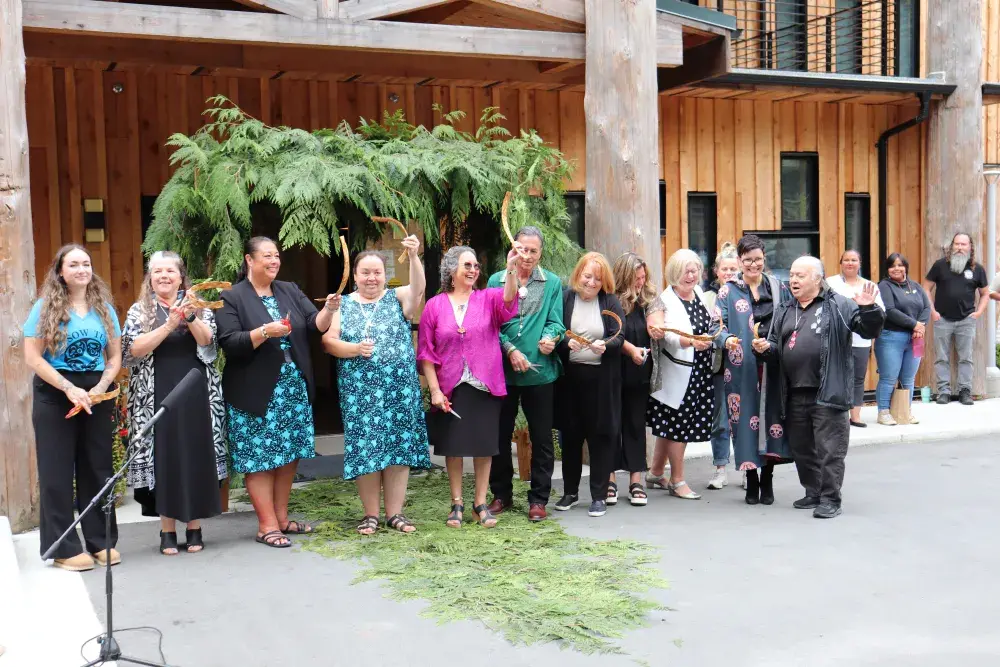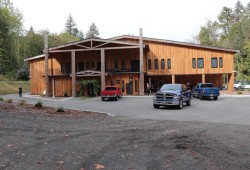Ceremony, prayer and plenty of singing and dancing marked the re-opening of treatment centre Tsow-Tun Le Lum at its brand-new facility located at 2850 Miller Road, on the south end of Duncan, B.C., in Cowichan Tribes territory.
Tsow-Tun Le Lum, which means Helping House in the Hul’q’umi’num’ language, is a fully accredited, registered, non-profit treatment society offering holistic and cultural supports for people - not only in addictions, but also for survivors of trauma. Tsow-Tun Le Lum has been helping Indigenous individuals break free from addictions and heal from trauma since 1988, starting at their facility in Nanoose.
Planning for the original Tsow-Tun Le Lum began in June 1977. The original facility was built on Snaw Na As territory north of Nanaimo. It opened in June 1988. Many people credit Tsow-Tun Le Lum for helping them achieve happier, healthier lifestyles.
The new, $18-million facility has treatment beds for 32 clients at a time plus space for elders that work there. There are meeting spaces, a gym, sweat lodge, courtyards, walking trails and a pond, all tucked in forest on the side of Miller Road. Funding for the new centre is supported through a Tripartite Funding Partnership between the First Nations Health Council (FNHC), First Nations Health Authority, the Province of British Columbia and the Government of Canada to enable communities to build and revitalize First Nations-run treatment centres in B.C.
Tsow-Tun Le Lum offers three programs, each with a focus on substance use, trauma or grief. All programs have a cultural healing component.
Periods of sobriety are a requirement for some programs Tsow-Tun Le Lum offers because they don’t have medical staff to help those that are detoxing. Group and individual therapy programs are directed by a professional team while cultural and spiritual healing is provided under the direction of elders.
“Each of our programs successfully integrates traditional teachings with modern therapeutic techniques,” the website states.
The first clients at the new facility came through shortly after it opened in November 2023.
The grand opening celebration started in the gym on Friday, September 13, with speeches, singing, dancing and a sacred pipe ceremony. People gathered outside to witness the ribbon-cutting ceremony.
“It takes a lot of effort and a lot of love to make a place like this possible,” said Nola Jeffrey, executive director of Tsow-Tun Le Lum Society.
“Today marks a significant milestone for the Tsow-Tun Le Lum Healing House,” said Brennan MacDonald, the First Nations Health Authority (FNHA) vice-president of regional operations for Vancouver Island. “As we celebrate the grand opening of this new location in Cowichan, we recognize the important work delivered over 30 years at the former site in Snaw-Naw-As. The new building design reflects the importance of cultural beliefs and practices held central to Tsow-Tun Le Lum’s approach to healing from trauma and addiction. We are so proud to stand together with Tsow-Tun Le Lum Healing House and look forward to the good work that will continue in this new space.”
“We’ve created an amazing home where people can come and heal and know they are loved,” said Jeffery, adding that it’s not just a treatment centre but a healing home.
She urged people to remind their loved ones how valuable and loved they are and how much they are needed.
“By improving access to culturally safe care and wholistic, traditional approaches to wellness, the Tsow-Tun Le Lum Healing House is a key partner to helping us achieve our vision of healthy, self-determining and vibrant First Nations children, families and communities in B.C. We look forward to supporting the continued evolution of services by the Tsow-Tun Le Lum Society in the years to come,” stated Richard Jock, First Nations Health Authority CEO.
According to Wade Grant, chair, of the First Nations Health Council, Tsow-Tun Le Lum treatment centre is a concrete example of how the FNHC is fulfilling their promise to bring health care closer to home with First Nations’ culture at the centre of their work.
“The FNHC knows that culture saves lives. That is why we support mental-health and addiction recovery in First Nation communities,” he said.
“People need programs and services that meet their needs and Indigenous communities are in the best position to determine what services are right for them,” said Jennifer Whiteside, B.C.’s minister of Mental Health and Addictions.
“I really love our people and really want them to do well,” said Jeffery.

